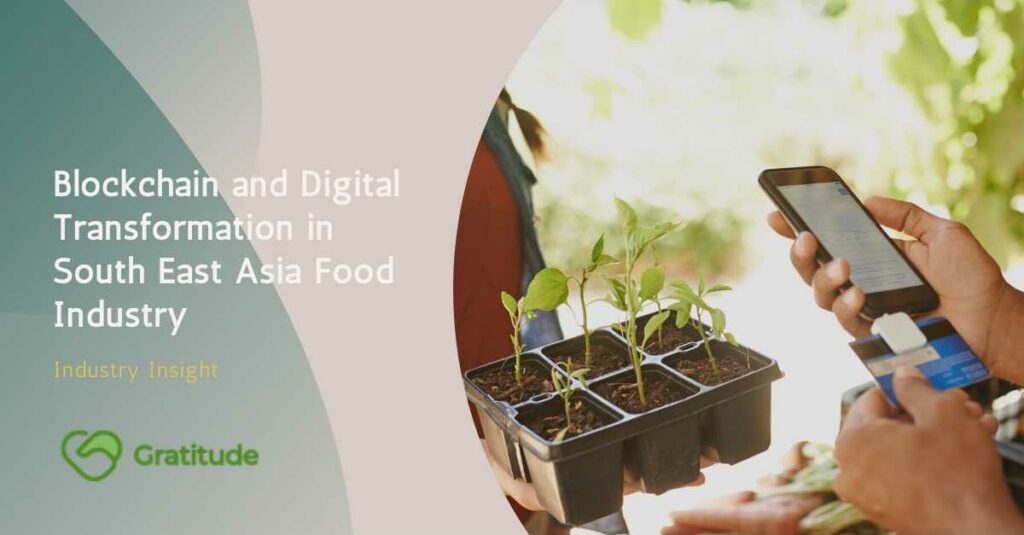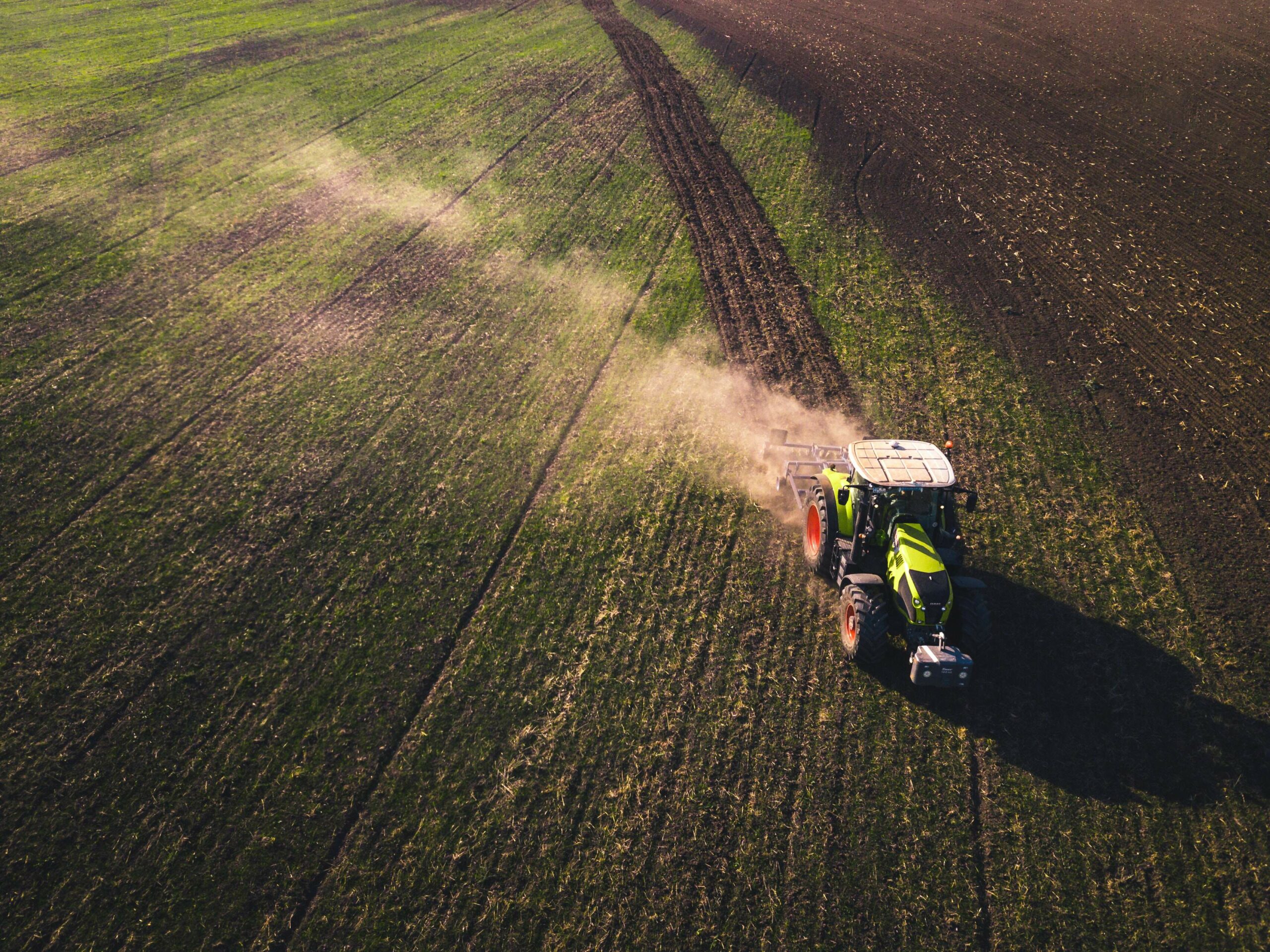
There is a very simple, yet often unknown way to recognize one’s impact on the events that are taking place on the other side of the planet – the so-called Butterfly Effect. According to this theory, small decisions that businesses apply can for instance lead to significant changes in the whole region. This time we are going to shed a light on how this paradox plays out in Southeast Asian agriculture.
Since this particular sector is a key employer in the region, it is also necessary to consider its significant impact on the economy. Technology and business oriented media KRASIA reports that in 2019, agriculture accounted for more than 35% of total employment in countries like Laos, Myanmar, and Vietnam. And according to the World Bank, the sector accounted for about 11% of Association of Southeast Asian Nations’s (ASEAN) gross domestic product (GDP) in 2020.
However, the climate change and its related disasters in recent years resulted in crop and livestock production losses which account for USD 21 billion. It is also not surprising that the COVID-19 pandemic caused a shortage of labor and disruptions in global supply chains. It is being estimated that in 2020, the region suffered a 3.1% reduction in the aggregate volume of agricultural production (29.58 million tons), which represents a 1.4% decrease (USD 3.76 billion) in the region’s GDP.
The above mentioned challenges affected more than 70% of the region’s poor people who live in rural areas and who have already been suffering from hunger, malnutrition, insecurity in the food industry and poverty. The Asian Development Bank also highlights the need to protect the most vulnerable groups such as women and migrant workers in the region.
The key to strengthening the sector lies in innovative technologies and this process requires execution of several steps. Firstly, it is necessary to implement new approaches to farming practices which help reduce the environmental effects. Secondly, the food loss and waste in the supply chain needs to be prevented. Finally, there is a growing need for adoption of new digital solutions that can obtain weather, market and technical information, as well as improve supply chains and food delivery. Both rising awareness among millennial and Generation Z consumers and a growing recognition of the benefits of adopting sustainable business models make significant difference, too. Furthermore, Asia Pacific Food Industry points out that trans-national supply chain disruptions caused by the pandemic also represent new potential opportunities for going local.
“The F&B industry in Southeast Asia is already taking measures to ensure more transparency in the supply chain. However, our study found that a lot more work still needs to be done in order to increase consumer confidence and improve food traceability in this region,” claims Fang-How, Lim, Regional Director for Southeast Asia, Zebra Technologies and author of the Food Safety Supply Chain Vision Study. According to the study’s findings, 90 percent of decision-makers acknowledged that investments in traceability-focused solutions will provide them with a competitive advantage by enabling them to meet the expectations of consumers.
The report Growth of Sustainability in Southeast Asia by Euromonitor International highlights that the reasons why companies in Southeast Asia are behind global players regarding the supply chain transparency are fewer economic incentives, less stringent legislation towards full disclosure, shortage of low-cost manufacturing, along with higher price sensitivity of consumers in the region.
However, supply chains account for the biggest environmental impact of businesses and therefore the sustainability credentials of its suppliers and business partners play a critical role in the firm’s progress towards achieving a successful sustainable sourcing plan. There are several required factors which play a key role in setting a trend towards a positive change: extensive collaboration between the Southeast Asian governments, deepening the commitments of private businesses to the SDGs, transparency and traceability, and ethical consumerism.
A great example of the supply chain transparency is the beverage giant Thai Beverage which is implementing a “Supplier Code of Practice” to ensure supply chain conformity to its sustainable business practices or Nestlé through its supply chain disclosures for palm oil, meat and other commodities. Further supply chain disclosures being planned across Nestle’s portfolio are expected to spur other companies in Southeast Asia to adopt similar disclosure policies.
20 European companies have gone even further in their commitment to transparency and ethical values by implementing blockchain solutions by Gratitude. The innovative technology ensures that food brands can guarantee security of their supply chains, as well as preservation of the environment and better marketing opportunities. By supporting sustainable practices and fighting the greenwashing, Gratitude helps to empower producers, workers and farmers in countries all around the world and sets the bright example for tackling some of the most pressing global issues. (Cont. page below)
In that spirit, Gratitude has attended Taipei-Indonesia Exchange: Agrifood Tech Meetup Pitch Day created by Indonesia Prima and Taipei Entrepreneur Hub Taipei Entrepreneurs Hub 台北創業幫 , powered by Rainmaking Innovation Taiwan, done simultaneously in Jakarta and Taipei earlier in september to deep dive further into agritech and food scene in the region. What Gratitude found was that numerous startups are disrupting the food and agritech industries with various novel ways and business ways of their own. But what was commonly shared among them are the viewpoints that the consumer is changing for the better.
New wave of millennial and gen-z consumers are preferring to have their food healthier, sustainable yet convenient. These are the type of preference that Gratitude SaaS solutions can provide. By integrating Gratitude to food products, brands can record their nutrients value, supply chain story, batch numbers and many more which enable consumers to efficiently know what’s inside their foods.
MOU with Prima Indonesia
Knowing that market condition, Gratitude has signed an MOU with Indonesia Prima, the event creator of Taipei-Indonesia Exchange: Agrifood Tech Meetup Pitch Day and one of the leading SME networking and growth organizations in Indonesia. With Indonesia Prima, Gratitude is aiming to reach hundreds of SME in the region and introduce Gratitude’s SaaS solution to enhance the food industry in Indonesia and SouthEast Asia.
As with our discussion too, Gratitude has found that the current woe that most SME is facing in the region are issue with counterfeit, compliance, and marketing. Those woes can be addressed by Gratitude using our versatile SaaS solution that enables brands to issue batch numbers, record their product’s story in granular detail and even run a marketing campaign using Gratitude’s landing page.
Through this collaboration, Gratitude is looking forward to revolutionizing the food industry in South East Asia and beyond for the better.
Is your brand looking forward to ramping up revenue, brand awareness and more?
Talk to Gratitude’s representatives and consultat for FREE in the following social channels :
Website : https://more-gratitude.com
Twitter : https://www.twitter.com/more_gratitude
Linkedin : https://www.linkedin.com/company/more-gratitude
Instagram : https://www.instagram.com/more_gratitude/
Facebook : https://www.facebook.com/followgratitude
Medium : https://www.medium.com/@more_gratitude
Sign up to our exclusive newsletter for special offers and latest industry insight :

